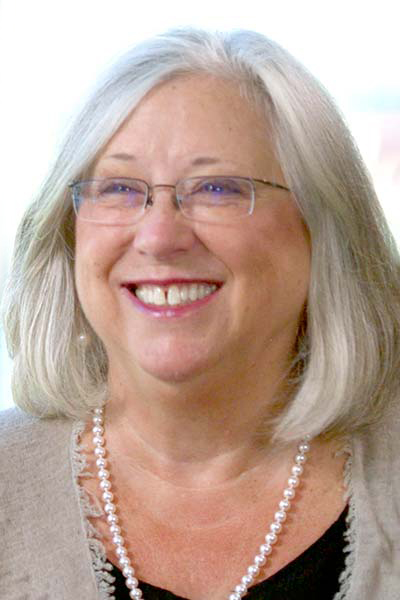Presidential Select Symposium explores complex challenges of cancer care during pregnancy
//
Estimated Read Time:

Cancer diagnosed during pregnancy or a pregnancy that occurs in a patient receiving anti-cancer therapy can create complex challenges for patients and loved ones, as well as care teams.
Lisa M. Coussens, PhD, FAACR, who was President of the AACR at the time, provided introductory remarks to open the Presidential Select Symposium: Pregnancy and Cancer, on Monday, April 17, during which a panel of experts discussed the importance of a multidisciplinary, sensitive approach to guide the management of this growing issue in oncology. The session can be viewed on the virtual meeting platform by registered Annual Meeting participants through July 19, 2023.
Ann H. Partridge, MD, MPH, Professor of Medicine at Harvard Medical School and Vice Chair of Medical Oncology at the Dana-Farber Cancer Institute, provided an overview of the challenges of cancer during pregnancy and discussed the importance of a patient-centered, evidence-based approach for care teams.

“Pregnancy after a cancer diagnosis or cancer diagnosed during a pregnancy pose complex therapeutic and ethical challenges,” Partridge said. “The goal is to aim for the most effective treatment for the woman with cancer and, at the same time, minimizing the risk for the fetus, which is something that can be almost impossible in some settings.”
Patient autonomy and shared decision-making should be the guiding principle for clinicians when making treatment recommendations, said Partridge, noting that there is a lack of randomized data regarding the safety and efficacy of cancer treatments in pregnant women.
“Much of the data that we do have comes from case reports, observational cohorts, and retrospective analyses, which are subject to heterogeneity, quality issues, and biases,” Partridge said. “This is a complex, multifaceted clinical scenario. We need to engage multidisciplinary teams and we need to contribute to registries and research so that we can learn more about how to optimize our medical, social, and ethical approach to this problem.”

Virginia F. Borges, MD, Professor and Deputy Head of the Division of Medical Oncology at the University Colorado Denver School of Medicine, explored the increasingly complicated landscape of reproductive rights in the U.S. and the impact on both pregnant women with cancer and their medical providers when abortion is considered.
“Data that has been collected on this topic suggest that it’s a minority of pregnant women with cancer who terminate their pregnancy, either by requirement or choice,” Borges said.
For some women, there’s a path forward in their cancer treatment that’s relatively safe for both the patient and the fetus, Borges said. However, abortion is part of evidence-based care for cancer during pregnancy, and sometimes must be part of the clinical discussion and shared decision-making process, she added.
“There are times when the clinical presentation precludes the option to treat the cancer through the pregnancy. Yet, we face a time when we could be legally bound to not discuss abortion as an aspect of medical care for our pregnant cancer patients, even when it would be the appropriate recommendation,” said Borges, discussing the potential risks medical providers face in the current situation. “There’s high potential for emotional and moral harm to us in this time. All of us medical doctors swore some version of an oath or promise when we graduated, and we can turn to that ethos for guidance. As always, when in doubt, do what is right for the patient.”

Brandon M. Hayes-Lattin, MD, Professor and Medical Director of the Oregon Health & Science University Knight Cancer Institute’s Adolescent and Young Adult Oncology Program, discussed issues related to managing hematologic malignancies in pregnancy.
“There are some unique aspects of hematologic malignancy when it co-occurs with pregnancy that are important to recognize,” he said. “One is that the group of hematologic malignancies is a spectrum of cancers that represent a spectrum of urgency-to-treat.”
Hayes-Lattin added that the range of possible treatments employed in hematologic malignancies is also vast, and the spectrum of possible pregnancy outcomes includes termination as recommended by international consensus.

“There are core research questions we need to answer, including how to best characterize fetal risk among the growing number of therapeutic agents used in cancer care, and we need research around populating registries that catalog cancer and pregnancy outcomes so that we can better counsel our patients,” Hayes-Lattin said. “We are all in a unique position to advocate for our patients by helping to develop and refine, and then promote expert medical guidelines for the management of pregnancy and cancer.”
To conclude the symposium, the speakers participated in a panel discussion with Coussens and Julia Maues, a breast cancer survivor and co-founder of Guiding Researchers and Advocates to Scientific Partnerships. Maues shared her experience of being diagnosed while pregnant and having to make difficult decisions at a time when she was vulnerable.




